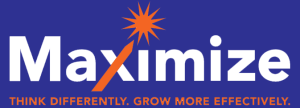So, in the Government 2.0 discourse, we’re constantly saying that “it’s not about the tools and technologies.” Rather, it’s about a shift in the way we do business — a shift to collaboration. So why is it so tough to get organizations to adopt collaborative tools, mindsets and practices? Why are so many organizations pushing back on using these crazy social media tools?
In the traditional, 1.0 world, knowledge = power. Senior leaders and subject matter experts are powerful because they hold unique and specialized knowledge. Web 2.0 tools and the collaborative approaches upon which they are built undermine the traditional organizational paradigm. In the Web 2.0 world, knowledge ≠ power. Rather, knowledge SHARING = power. This is, obviously, enormously threatening to those who are experts, those currently in powerful leadership positions.
Because social media and Web 2.0 tools and technologies enable this sharing, many leaders’ instincts are to stop people from using these tools. If they can stop employees from doing this silly “collaborating,” they can stop the knowledge sharing that’s really the root of the power shift that’s (often subconsciously) seen as a threat to their power positions.
However, the approach (instinct?) of those with collaborative mindsets — “Collaborators” — is to band together with other like-minded individuals (online and offline) to problem-solve…. So, at first, Collaborators try to apply collaborative practices, processes and tools within their organizations. They know that there are better ways to do whatever business it is that they do. They see that missions can be accomplished more efficiently and more effectively.
Collaborators self-organize and pursue one or some combination of three approaches:
- Analogy: introduce external, but industry-related case studies that illustrate the value of collaboration
- Pilot: to the extent possible, do small test cases that actually prove collaboration can work within their own organization
- Convince: just talk the talk, meet with leaders and build bridges throughout the organization to create influence
At some point they either break through and make headway or their effort disbands, just as organically as it came together, because they find themselves banging their heads against a weight-bearing wall.
Medication errors can happen anywhere, but you can protect yourself. There are many of legal online drugstores that will offer legitimate discounts. Certainly it isn’t all. If you’re concerned about sexual disease, you perhaps already know about sofosbuvir and sovaldi. What professionals talk about sofosbuvir hep c? (Read more sovaldi). The signs of sexual problems in men switch on inability to maintain an erection sufficient for sexual functioning. Happily many problems with sexual soundness can be treated. Before purchasing Kamagra or any other generic, discribe your doctor your heartiness condition. Health care provider may order certain tests to rule out any other problems that may be contributing to the disfunction. Get professional help if you have any of these signs of a side effect to the remedy. If the medicament you are taking is not approved, your doctor can prescribe another formula medicine.

Great article I think you capture the essence of the issue well. We get push back because its not just about the tools. Change is hard, and most people resist it, even when it is obviously a good thing. Anyone quit smoking recently?
Even if we are not stuck in the information is power thing, most folks will find adopting a new mindset a little disconcerting. We need to encourage and support those folks to experiment in safe ways. As for those that are not willing to even experiment, I ignore them, they will either come on board later, or retire.